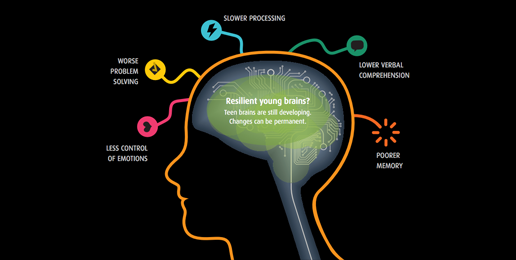
Since January, when the recreational use of marijuana became legal in Illinois, state-licensed stores have sold more than $500 million worth of the drug. Illinois is one of 15 states plus the District of Columbia that has legalized recreational use of the drug. In 1996 California legalized medical marijuana. Nearly a quarter century later, 36 states including Illinois and the District of Columbia now permit it. Over this period marijuana use has become acceptable in most of the United States. But has this acceptance brought harm to young people?
Mary Thielbahr, founder and director of Clearview Girls Academy, a Christian residential treatment center, would most likely answer with a resounding “yes.”
“Today’s marijuana is not like the ‘60’s version. Scientific changes made to the plant now produce an extremely powerful substance,” Thielbahr wrote in a recent white paper, “Marijuana Harms Teenager Minds.” She warned while society claims marijuana provides relaxation or relief from sadness and pain, it “poisons the brain for babies, children, teens, and even young adults up to the age of 24 years old.”
Thielbahr shared that since the early 1990s, the federal government has reported “the average THC content in marijuana was less than 4 percent. It is now about 15 percent and much higher in some products such as oils and other extracts.” THC or Tetrahydrocannabinol is the psychoactive compound in marijuana that gives the user the feeling of being high.
She reported that according to WebMD, “the odds of addiction are 1 in 6 if you use pot in your teens. It might be as high as 1 in 2 among those who use it every day.” Users may also become physically dependent on the drug.
As a result, marijuana can bring about significant changes in behavior after one year’s use. “Marijuana actually affects teenage brains significantly and changes the teen’s personality,” she shared. “Parents of a teen that uses marijuana end up with a different child–one that shows defiance because of changes in the teen’s brain.”
Thielbahr said marijuana effectively damages the brain which must be rewired and that takes time. The damaged brain “cannot change without a focused, long-term transformation process,” she explained advising against short-term treatment centers. She suggested parents seek long-term treatment options, such as Clearview Horizon Therapeutic Boarding School and Residential Treatment Center for Girls, that address other risky behaviors teens engaged in marijuana use are likely to be involved.
Thielbahr also noted teens who use cannabis may be more likely to commit suicide. She shared that teen suicide rates have risen in “states that fully legalized the use of marijuana” listing Colorado, California, Maine, Massachusetts, Michigan, Nevada, Oregon, Vermont, and Washington.
Read the white paper HERE.
We take very seriously the trust you place in Illinois Family Institute when you send a gift.
We understand that we are accountable before you and God to honor your trust.
IFI is supported by voluntary donations from good people like you.






















